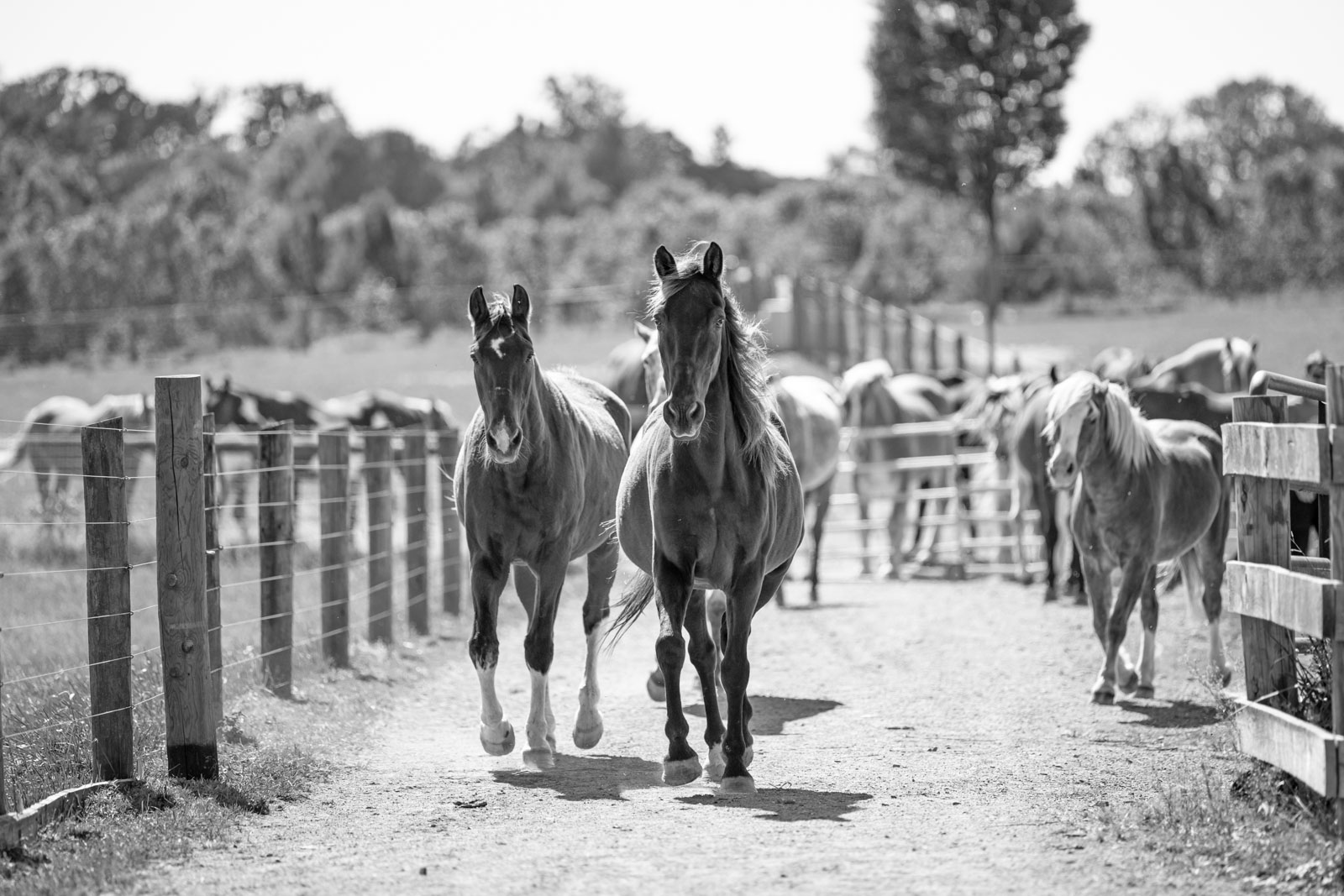We shine a spotlight on four remarkable individuals who are actively making
their communities better, lifting others up, and extending their kindness to animals
as well as people. Their boundless generosity creates a ripple of positivity that touches the lives of those around them, and their unwavering dedication to bettering the world is a gift to us all.
Lezlie Hiner
FOUNDER WORK TO RIDE
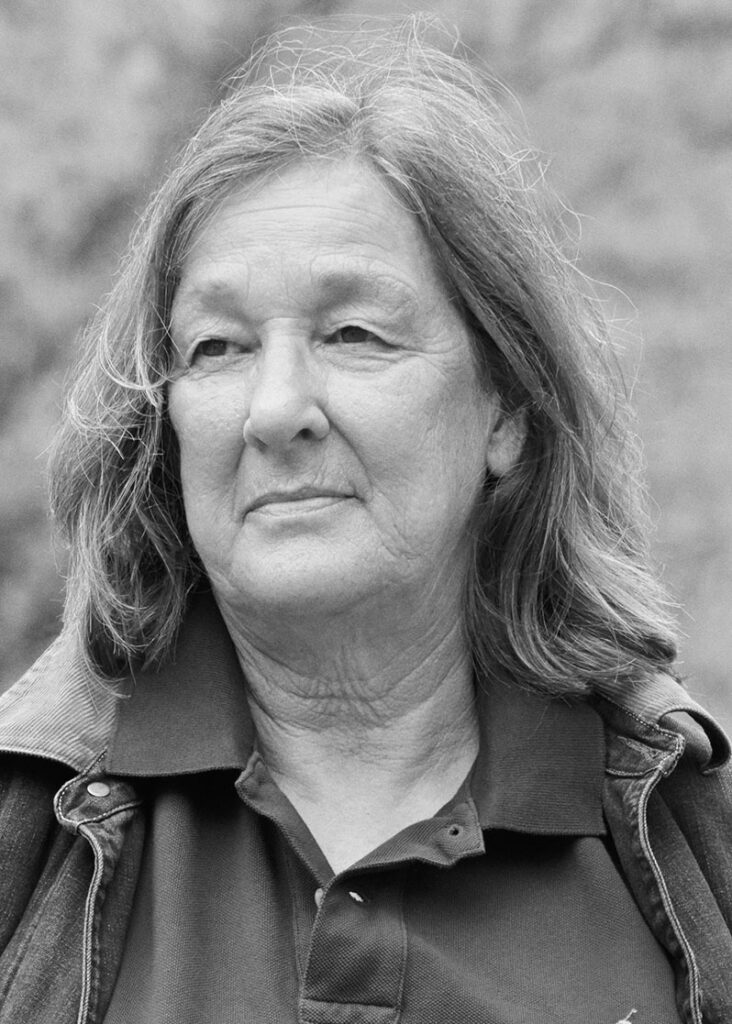
PHOTOS COURTESY WORK TO RIDE
Some say horse girls are born, not made, and Lezlie Hiner is living proof. Once a toddler begging nickels for the mechanical pony outside the grocery store, today she’s bringing the joy and discipline of polo to underserved urban youth through Work to Ride, a 501(c)3 based in Philadelphia. In the 30 years since she founded Work to Ride in 1994, hundreds of inner-city kids have discovered a new world of possibility, with some even going on to Ivy League universities and playing polo at the collegiate level.
Lezlie got her first horse in high school, a gift from her uncle, a country doctor in Indiana who had been compensated for his services with the animal. Since then, she has rarely been without a horse and spent most of her career prior to founding Work to Ride working in the equestrian industry. Starting as a hot walker at 18, she worked her way up to assistant trainer before taking a break to get a psychology degree. Despite this academic interest in human behavior, it wasn’t long before she was back at the track working as a trainer. After a brief detour into the family business, she came back to the horses again, this time melding her passion for horses with a desire to serve youth at risk in Philadelphia. She says, “Horses can be a lifeline, keeping kids out of trouble.”
With the needs of Philadelphia’s underserved and under-resourced kids in mind, she wrote the business plan that was the foundation for Work to Ride. The Fairmount Park Commission deemed the project a worthy undertaking and gave the fledgling organization access to the Chamounix Equestrian Center in Fairmont Park. A grant from Sun Oil kick-started the program, which got underway with 20 boys from some of Philadelphia’s most challenged neighborhoods.
The years of hard work and struggle have paid off. Today, hundreds of at-risk children have reaped the myriad benefits of participating in equestrian sport. Says Lezlie, “Work to Ride is focused on compassion and empathy and building bridges in communities. We want to instill a love of horses, show the value of education, and support these kids in every way we can.”
Work to Ride has shown impressive results over the years. While the main goal is providing support and opening a new world of opportunity to children in challenging circumstances, the organization boasts some impressive achievements. In 2011, Work to Ride fielded the first African-American team to win the national intercollegiate polo championship. Work to Ride alums have gone on to college, some on polo scholarships to Ivy League universities. This fall, Work to Ride’s Alyssa Pearson started her freshman year at Harvard.
Ground has been broken for a new $13 million, 35,000 square foot indoor riding facility at the Chamounix Equestrian Center. Work to Ride is poised to expand significantly, bringing the rewards of equestrian sport to a growing number of Philadelphia’s most challenged young people. One horse-woman’s dream has been a transformative force in the lives of hundreds of children. The new facility will carry on a legacy that will benefit new generations of Philadelphia kids.
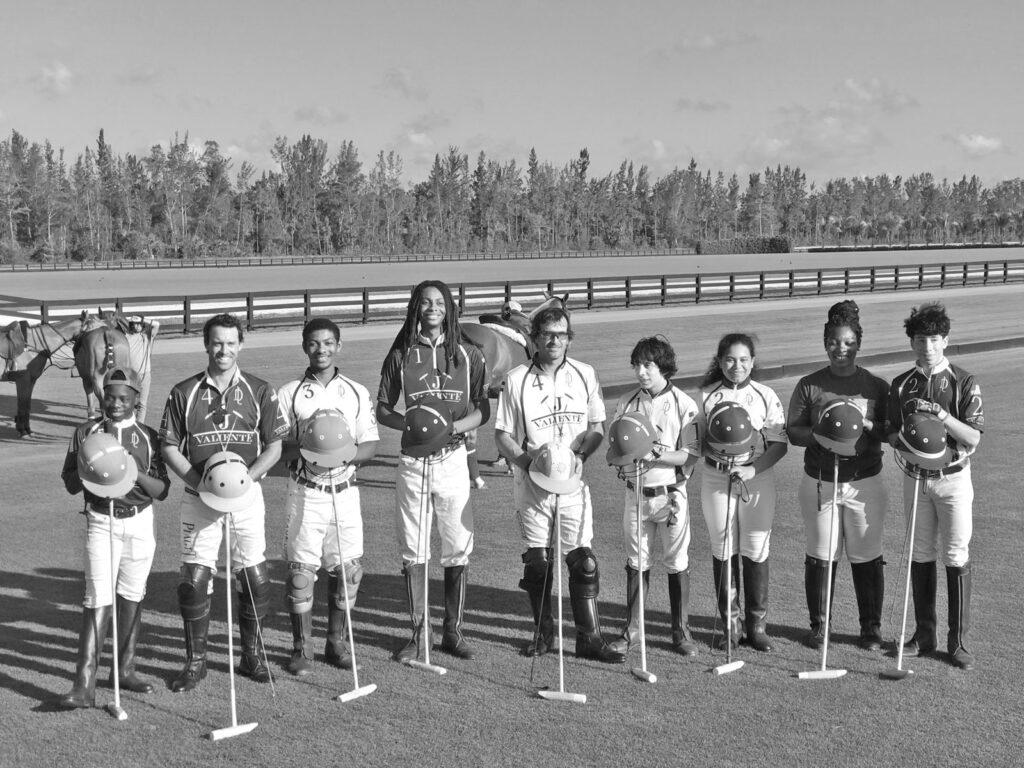
Bonnie Jenkins
Executive Director of USET Foundation
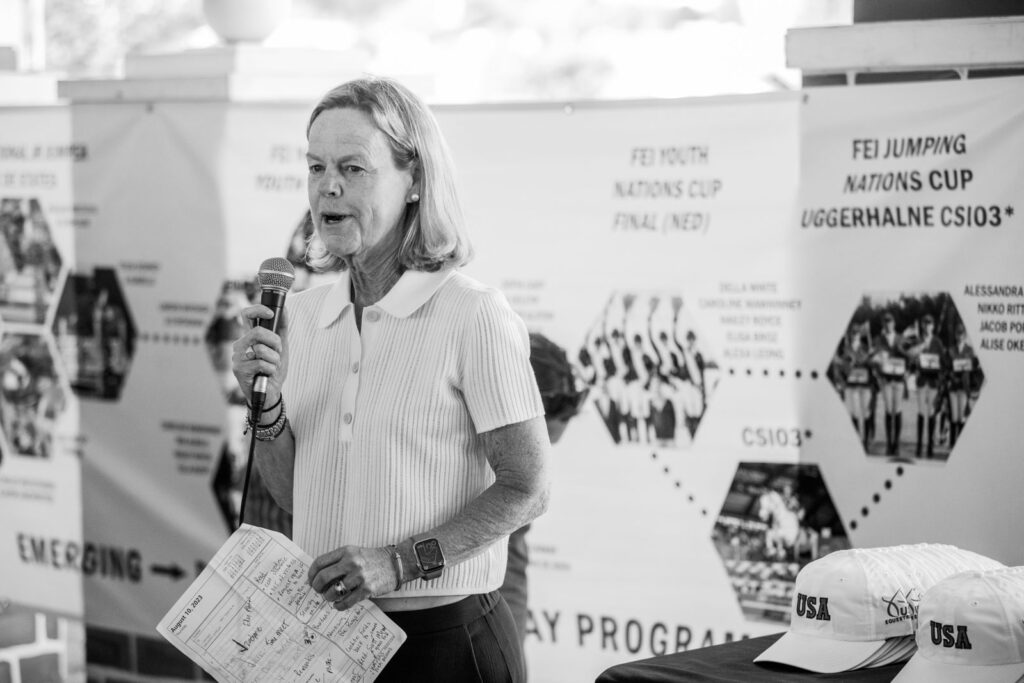
JUMP MEDIA
The United States Equestrian Team (USET) is the non-profit organization that supports the United States equestrian athletes and teams. Bonnie Jenkins, executive director, says, “It is truly a dream job. Because of my deep-rooted love for equestrian sport and having grown up riding and competing on a national level, I understand the dedication and commitment it takes to excel in an equestrian discipline. So many young athletes dream of going to the Olympics. While this was not my path, my unwavering passion for the sport and my profound sense of patriotism have allowed me the privilege of following my dream by being part of the United States equestrian team in a different capacity.” Bonnie’s’ efforts help raising the money to critical to preparing the up-and-coming and elite athletes as they progress along the pathway to success on the most significant international stages, ensuring they have access to high performance coaches, programs and international competition opportunities. She adds “Ultimately, my goal is to help support these athletes on their journey to potentially representing the United States at the pinnacle of sport, the Olympic and Paralympic Games. It’s a fulfilling way to combine my personal passion and commitment to our nation’s athletes and equestrian teams.”
Over the last 20 years, the (USET) Foundation has contributed over $55 million in grants to help support the country’s equestrian athletes, teams, and programs thanks to the leader- ship and generosity of the (USET) Foundation Board of Trustees, their passion and investment in the sport, as well as the thou- sands of donors who make the (USET) Foundation one of their important charitable contributions each year.
Jenkins grew up in Massachusetts and fell in love with riding at summer camp. “My first pony was named Farnley’s Blueberry Waffles,” she laughs. “He was a terror. When I stayed on him, which was about 50 percent of the time, we had some success in local pony hunter classes. He taught me perseverance and tested my love of the sport. Following Waffles, I was fortunate to have some lovely show hunters that brought me success in the Junior Hunter divisions. In my final junior years, I was perhaps the luckiest junior hunter rider alive to have been able to have the iconic hunter, Gozzi, who had been ridden by professionals Kenny Wheeler, Bucky Reynolds, and Bernie Traurig, and he dominated the Working Hunter divisions. His success continued by winning championships at the Winter Equestrian Festival, Devon, and the National Horse Show with me along for the ride. It was truly a time to remember and is, without a doubt, my biggest accomplishment and claim to fame in equestrian competition.”
“While I was not a jumper rider, I was surrounded by friends and stablemates of talented show-jumping athletes who went on to have great success in international competition. It was exciting to see their dreams come true by representing the United States around the world. This gave me a first-hand glimpse into what ‘riding for the team’ really meant.”
Bonnie’s entire professional career has been involved with equestrian sport and its governance. In 1985, after graduating from college, she worked for the sport’s then-governing body, the American Horse Shows Association (AHSA), in an entry-level role and eventually became executive director in 1992. In 1999, she became assistant executive director of the United States Equestrian Team (USET) and executive director in 2001. In 2003, the USET transitioned to the USET Foundation.
“With the 2024 Olympic and Paralympic Games in Paris, France, and the home games in Los Angeles, California, in 2028, on the horizon, we have our work cut out for us,” she says. “American equestrians and fans of the sport have a great sense of pride for our United States equestrian teams, and I know that will allow us to continue a legacy of excellence.”


Photos by Jump Media. Left: Bonnie Jenkins with McLain Ward. Right: Bonnie Jenkins with Rowan O’Riley and Celene Oken.
Erin Clemm Ochoa
CEO OF DAYS END FARM HORSE RESCUE
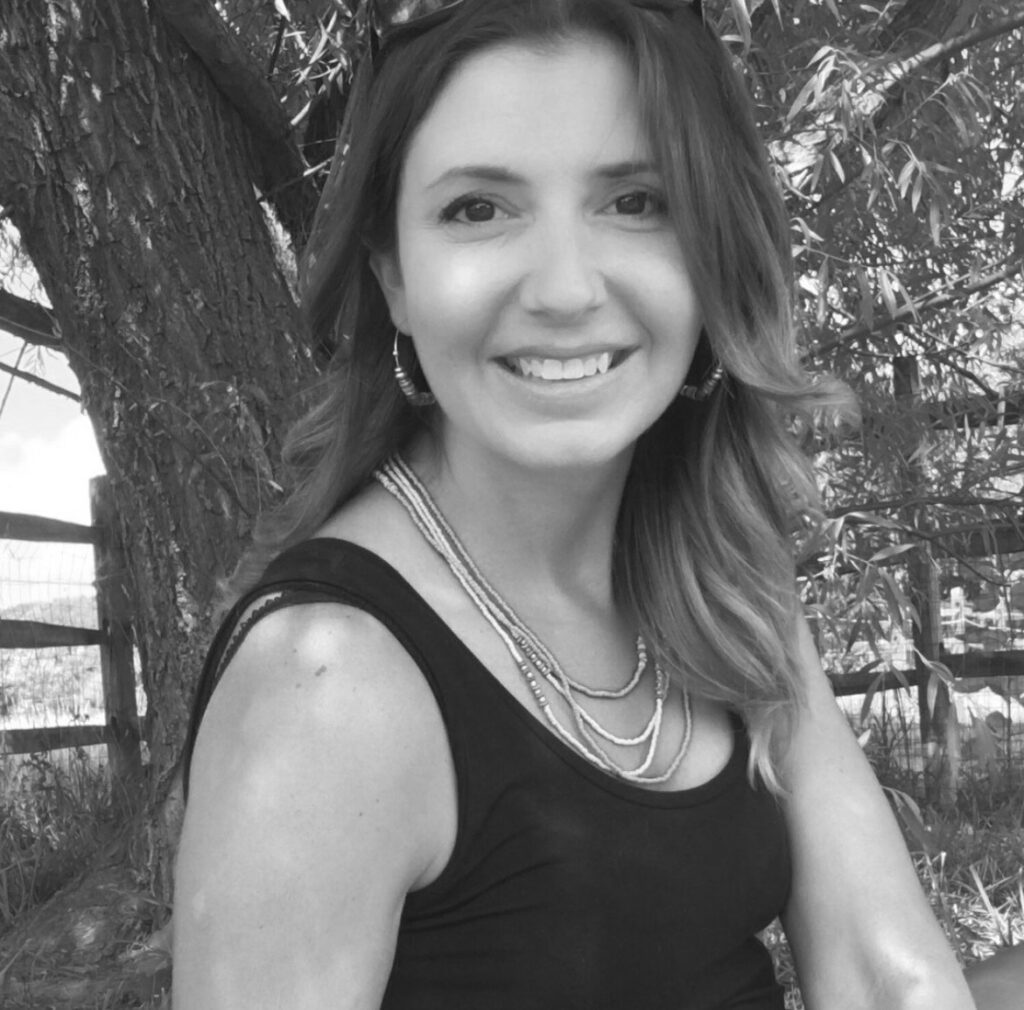
PHOTOS COURTESY OF DEFHR
Days End Farm Horse Rescue (DEFHR) is a national leader in equine rehabilitation practices and equine-cruelty education. It has evolved from a small nonprofit to a full-scale rescue and rehabilitation facility that shelters an average of 130 equines annually all funneled through animal protection authorities across Maryland and surrounding states.
CEO Erin Clemm Ochoa says, “My role as the CEO at DEFHR allows me to help move the organization towards the future and make an impact in equine welfare. I have been with DEFHR for 18 years, and, in that time, I have seen a lot of horses that have had life-saving interventions. Sharing those stories brings awareness to the community of the issues facing horses and owners. My work means I can make a change for horses’ lives that are suffering now and in the future.”
DEFHR values making horses accessible to people of any skill level. Because of that, the bulk of their volunteer resources come from beginners. “We get to help people learn about horses in a supportive way,” she says. “We get to bring them along a journey of a horse’s transformation and teach them about neglect and proper horse care. I love being able to help people become more compassionate about ani- mals. Another thing that is satisfying is being able to show our donors how we are making progress with their impact investment to our cause.”
Erin fell in love with horses when she was around 10 and started taking lessons and attending local horse shows. She joined Pony Club and really found a love of dressage and eventing. “Pony Club was a great place to spread my wings and learn independent skills in horsemanship,” she says. “Over the years, I deepened my love for dressage and competed in that discipline through my college years.”
At DEFHR, she directs all organizational day-to-day operations, implements the strategic plan, and oversees a $2.2 million annual operating budget. Additionally, she is certified as an equine investigator and animal control officer. Erin has been a court witness for criminal cases in equine neglect and abuse.
“Adoption is a great option for people who are look- ing for riding or companion horses,” she says. “When you adopt a horse through a rescue group like DEFHR, you are gaining a team of support through the horse’s entire life. Sometimes, things in people’s lives change, and having a place to turn to get support can be very helpful. DEFHR will always take a horse back into our care if the adopter needs us to. Also, adoption can be a financially smart decision. Often adoption fees are well below the market value of the horse. People should keep in mind that good horses find themselves in bad circumstances and have a lot still to give. The biggest reason to consider adoption is you are helping not only the horse you are adopting, but opening up a space for the next horse in need. The more horses that can find adoptive homes, the more horses can be helped within your community.”




Christine Quinn
ADVOCATES FOR NEW YORKERS THROUGH HER SUPPORT OF GALLOPNYC
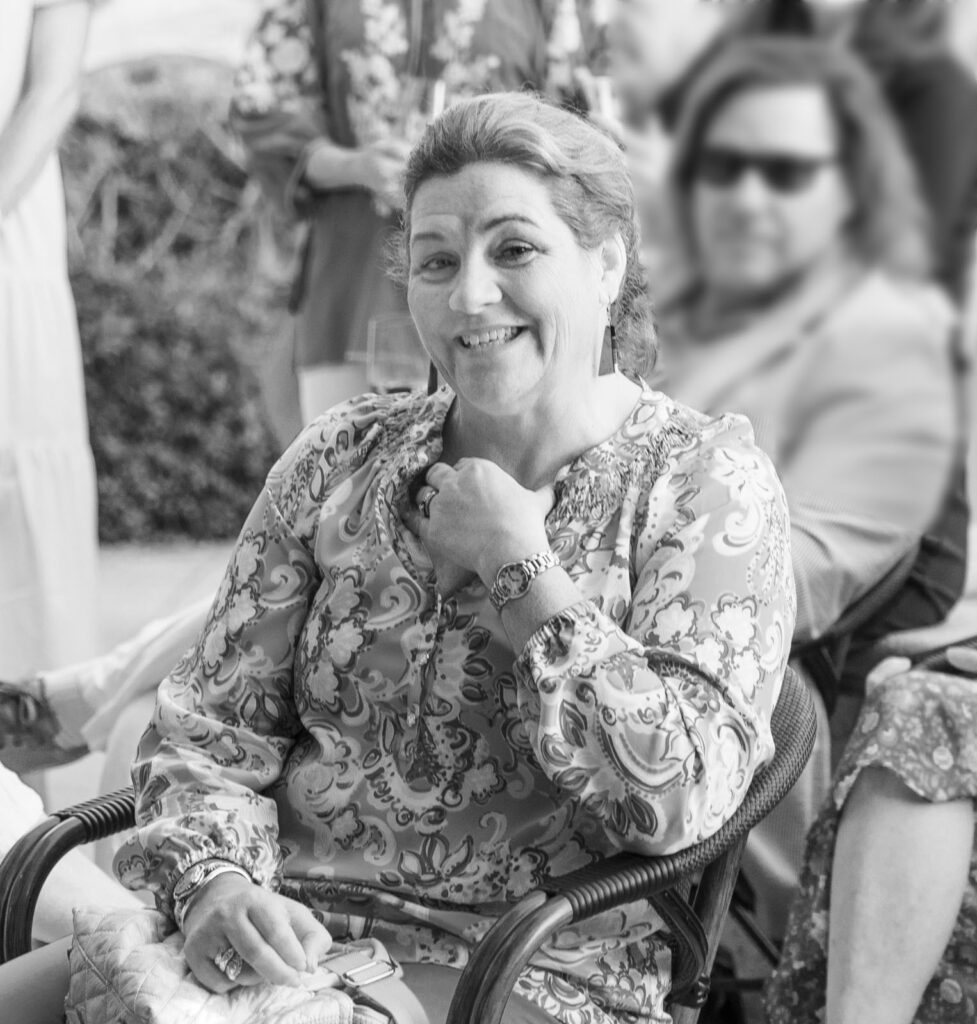
Christine Quinn, the former Speaker of the New York City Council, mayoral candidate, and advocate for The City’s homeless through her work as President and CEO of Win, has another passion: horses. She started riding at 4 and says her older sister forged the path for the Quinn siblings when her father bought an off-the-track Thoroughbred.
Quinn stopped riding after high school and returned to the sport in 2014. “Following my run for mayor, I was in a dark place,” she said. “My wife, Kim, asked me what I hadn’t had the chance to do while on the City Council. The thing about politics is that it’s constant work. That’s when I thought about riding. She suggested I take it back up, and I started taking lessons in Colts Neck, New Jersey, which already tells you all you need to know about the area.”
What followed was horse ownership and hunter/jumper competition. “It was helpful to have this hobby, which I loved so much, back in my life,” Quinn said. “The horse can feel everything, and you get so much love from the animal—it helped me when I needed it.”
Quinn learned about GallopNYC when she was the Speaker of the City Council. “Many groups come to the City Council Speaker seeking funding—but what spoke to me was the uniqueness of their program,” she said. “GallopNYC is the only therapeutic horse center in New York City and has a great partnership with the New York City Parks Department. You can’t argue with the program’s results—I’ve seen the effects horses have on people’s lives, and I believe in their message so much that we’re creating a program between Win and GallopNYC for domestic violence survivors. Horses are magical. They’ve helped me and plenty of people I know through dark times, and that’s precisely what GallopNYC is doing.”
Quinn sees parallels between GallopNYC and Win, the largest provider of family shelter and supportive housing in New York City. “GallopNYC’s goal is to help support people,” she said. “They help people who need to find internal strength and move forward. We’re doing this same kind of work at Win but in the context of housing. GallopNYC does not judge people on their riding—anybody, any capability, can participate. They take everyone as they are and work with them. No blame, no shame. That’s what we do at Win. GallopNYC parallels us there.”
Quinn is particularly impressed with the GallopNYC programs’ accomplishments. “GallopNYC has a job skills program called HERD, which provides individuals with disabilities a variety of experiences to prepare them for future employment. The participants are compensated to recognize and validate their labor as they transition into the workforce. It’s a fantastic program that allows people with disabilities to achieve independence. Additionally, GallopNYC offers recreational riding lessons and pours that revenue back into scholarships for New Yorkers who need financial assistance to join GallopNYC’s programs. It’s a great way to introduce New Yorkers to horseback riding while giving back to our city.”



PHOTOS COURTESY CHRISTINE QUINN and SNAP PHOTOGRAPHY AND CINEMA.
To read the entire November/December 2023 issue click here.

